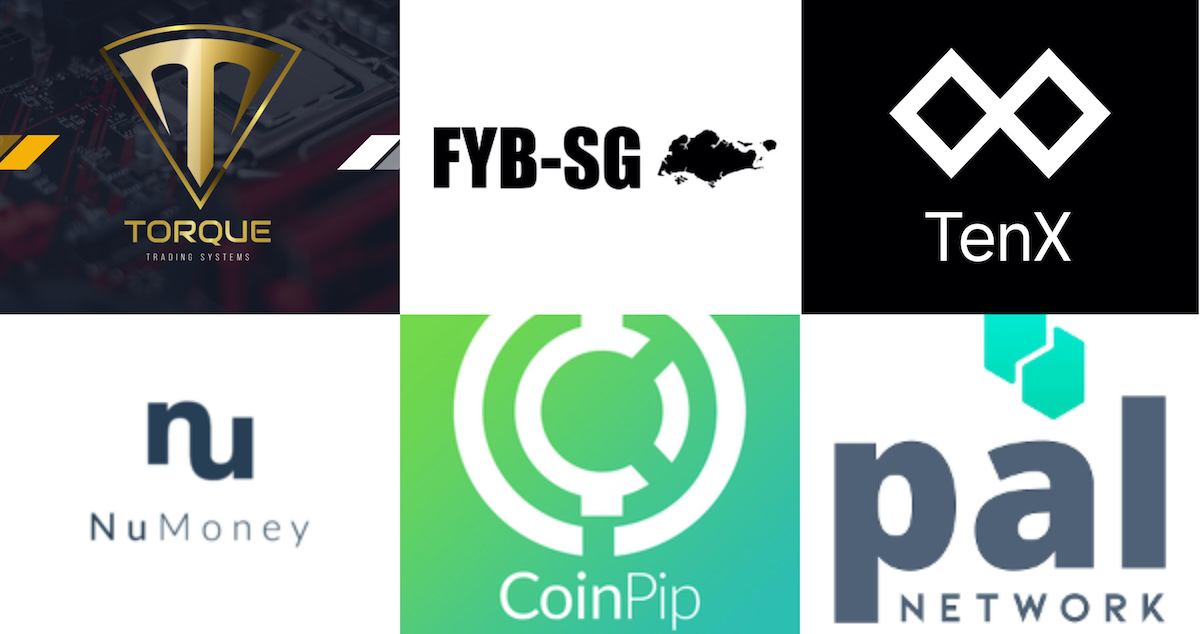Singapore prides itself as the crypto hub in the Southeast Asia and surrounding region, with blockchain being ranked among the three top industry trends in the country as of 2020 and new cryptocurrency startups being set up in recent years.
The Monetary Authority of Singapore (MAS) has adopted a pro-blockchain stance with favourable tax treatments and public funding for blockchain development. It also considers blockchain technology “fundamental” to the economic development in Singapore.
Singapore has also joined ranks with a handful of countries to set up a Cryptocurrency and Blockchain Industry Association, dedicated to assisting small and medium-sized cryptocurrency and blockchain enterprises.
This makes it relatively easy for locals and foreigners alike to set up a cryptocurrency business in Singapore, which is why cryptocurrency and blockchain companies are mushrooming here.
However, many startups seem to be merely riding trends and burning investors’ money instead of showing real results and utility. Worse, some of them actually prove to be pump-and-dump or Ponzi schemes that defraud users’ money.
Here’s a look at six cryptocurrency startups that have launched over the past few years in Singapore, but are now no longer in operation.
1. Torque Trading Systems

Incorporated in 2019 in British Virgin Islands as an online crypto-currency trading platform by Singaporean Bernard Ong, Torque appeared to be a multi-level marketing (MLM) investment platform, in which new investors need to put in their money as well as recruit new investors to sign up with Torque.
Members are then paid by referral commission downline investment via a unilevel compensation structure.
A multi-level marketing or pyramid selling scheme will typically require participants to pay an upfront charge. In return, the participants are promised financial rewards for each additional participant recruited, hence the pyramid-like structure.
As more salespersons are recruited, participants hope to recover their upfront charges and earn sizeable profits. However, such pyramid schemes will eventually collapse when they run out of new recruits, resulting in those salespersons at the bottom of the pyramid losing all their upfront charges.
Earlier in February, Bernard announced the collapse of the company and the suspension of all trading activities.
The company blamed a dishonest employee that allegedly made unauthorised leveraged trading on the platform and suffered losses, thus draining members’ investing accounts.
A police report has since been lodged against the employee, who is allegedly responsible for the losses. However, the employee was said to be based outside of Singapore and could not be contacted.
Bernard had also applied to British Virgin Islands courts to wind up the company, which was granted in mid-March this year.
As of April 2021, there are up to 115 police reports filed against Torque Trading Systems from defrauded investors. It had also been reported that many Singaporeans have lost their life savings and investments of up to S$1 million from the Torque debacle.
2. TenX
Founded in 2015 at a hackathon in Singapore, TenX was a platform that connected users’ assets stored on the blockchain with “real-world” payment platforms through an all-in-one, blockchain-based crypto platform.
Users could leverage TenX’s app to store different types of blockchain assets in one place, as well as use its physical debit card to pay with crypto at retailers around the world.
In 2017, the company raised an Initial Coin Offering (ICO) of US$80 million (S$107 million) and positioned themselves as one of the strongest crypto players from Singapore.
However, in January this year, TenX announced its decision to discontinue its services and shut down indefinitely.
New signups were being disabled and members were told to withdraw all their funds from TenX wallet. Meanwhile, its website stated that they are migrating to a new project called Mimo.
One of the main reasons behind their downfall was the wirecard insolvency in Europe and Singapore. Wirecard — the parent company that powers TenX crypto debit cards — filed for insolvency in June 2020 after facing allegations of misappropriating over US$2.1 billion of its funds.
Reddit sources and an interview with a displaced co-founder Dr. Julian Hosp suggests the lack of innovation, the lack of growth of products and user base, and management scandal as other unfavourable factors contributing to its ultimate demise.
3. PAL Network

PAL Network (PAL) was a Singapore-based dual-layered protocol for financial assets that aimed to enhance access to insurance protection.
In a Medium post that was published in October 2020, the PAL Network team issued a statement on the conclusion of their blockchain journey.
The post stated that they would cease operations, delist PAL tokens from all exchanges, and burn all remaining PAL tokens by 30 October 2020. Additionally, they would donate their remaining capital to World Vision.
According to the post, the reason behind this closure was due to them running out of funds to continue operations and development.
The depletion of their funding was attributed to the erosion of the market value of ETH, which was the primary digital asset contribution received by PAL Network for their PAL token sale. Within two months of completion of the token sale, ETH went on a downward spiral in the 2018 crypto crash.
This erosion in ETH value resulted in PAL Network losing close to 60 per cent of its funding from the PAL token sale which significantly shortened PAL Network’s development and operations runway by more than half — two years, down from five years.
The company also mentioned that due to Covid-19 pandemic, interest from insurance partners have dropped significantly. They had also failed to gain mass market adoption of their insurance product offerings.
4. CoinPip

Founded in 2012, CoinPip was a Singapore-based international remittances startup that aimed to disrupt the remittances industry by allowing business-to-business (B2B) customers to make payments and transfers overseas with Bitcoin to facilitate the transactions on the backend.
The team had landed investment and advisors from DBS Bank, PayPal, Visa, among others.
As of 11 February 2020, CoinPip has suspended all operations “until further notice” to focus on reviewing license requirements under the Singapore payment services act. The MAS had updated its regulatory framework for crypto-related activities, including digital payments.
CoinPip and other crypto businesses in Singapore were required to first register and then apply for a license, as well as disclose their traders’ identities and report suspicious activities.
5. FYB-SG

FYB-SG was a Singapore cryptocurrency trading exchange that had been operating since 2014. It was owned Dealworks Pte Ltd, which was registered as a deposit stored value facility and did not require the approval of MAS.
The company had the full functionality of a trading platform and allowed placing, canceling and viewing of orders, price info, trade history and order book. It also had a mobile app for Android and iOS devices.
The company ceased operations in 2019 due to the closure of their bank account.
Apparently, issues with banking relationships is a common reason for the closure of many cryptocurrency companies. Most times however, the banks involved do not offer any reason for the closure of companies’ bank accounts.
6. NuMoney

Launched in 2017, NuMoney was a company that allows customers to buy and sell Bitcoin and other cryptocurrencies over-the-counter (OTC).
They helped non tech-savvy Singaporeans to purchase crypto physically at their counters. Users would have to register with their ID and transact cryptocurrency on the spot with the help of NuMoney staff.
On top of their OTC services, the company had had their own online trading exchange platform.
As of 2019, NuMoney was no longer operational due to the closure of their bank accounts – OCBC, Maybank, and DBS.
Apparently, they received too much money from their customers, in the average of four-digit sums. Although NuMoney had proper documents and invoices to back up these transactions, the banks flagged NuMoney and shut down their accounts.
In a blog post, founder Steven Goh expressed his disappointment with Singapore’s banking system and unfair practices that limit the growth of the fintech players.
Easy To Start, Hard To Survive
It might be relatively easy to start a cryptocurrency business in Singapore, however the road to profitability and adoption is much longer and arduous than the average startups in other industries.
Moreover, blockchain and cryptocurrency technology is relatively new and complex, hence there is limited programming ecosystem to develop products, not to mention difficulties to find use cases and product-market fit. The volatility of cyptocurrency value also poses a lot of other problems to crypto businesses.
Pushback from traditional banking industry and MAS might also cripple the operations of these new businesses, as legal framework regulating the space has not been properly set and might change at a moment’s notice.
The long-term potential of having a successful cryptocurrency business is limitless, but just like the value of cryptocurrency — one can expect roller-coaster fluctuations along the way.
Therefore, it’s not an understatement to say that starting a cryptocurrency business is not for the faint-hearted.
Featured Image Credit: Logos of respective companies









